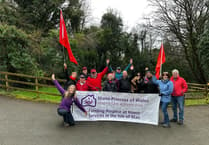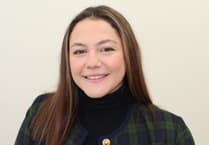The pilot who was killed when a light aircraft crashed into Bradda Head made several phone calls during the flight indicating that he did not intend to return.
An air accident investigation has concluded that the crash was likely to have been a deliberate act.
Financial adviser Karl Bettoney, aged 64, of Laxey, was the only one on board the Cessna aircraft when it crashed on July 17.
An inquest into his death has been opened and adjourned pending the gathering of all evidence.
But a report by the Air Accident Investigation Branch has revealed more details about events leading up to the fatal crash.
It found that the pilot had been suffering from difficulties with sleep for a number of months and with anxiety in the weeks preceding the flight.
During the flight he had made several phone calls to a family member which indicated that he did not intend to return.
The report concludes: ‘The pilot had been under the care of his GP who had diagnosed sleep issues and anxiety. Several phone calls were made during the flight that indicated that the pilot did not intend to return from the flight.
‘G-TOTN was flown directly towards Bradda Head below the level of the cliff top. Then investigation found no evidence of any technical faults that would have prevented the pilot from manoeuvring to avoid the cliff, and it is likely that the accident was a deliberate act.’
Mr Bettoney had arrived at Ronaldsway airport about 8.25am on July 17. Numerous witnesses saw him either sitting in the plane or had spoken to him around the hangar.
The pilot took off at 11.30am and flew a route to the southwest of the island before flying up and down the coast several times.
Witnesses reported the aircraft flying lower than they had seen with other aircraft but that it sounded normal. At 11.55am the pilot turned onto a southwest heading to fly parallel with the coast and then turned to the east to fly directly into the cliff below the tower on Bradda Head. The impact was not survivable, notes the AAIB report.
The report says the pilot had not declared his sleep and anxiety problems or the drugs he had been prescribed to his Aeromedical Examiner. ‘Had the AME been informed of the diagnosis and prescriptions given to the pilot, the medical certificate would have been suspended,’ the report states.




